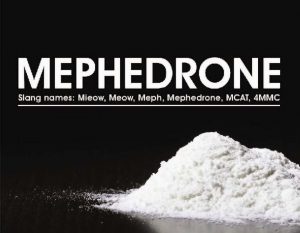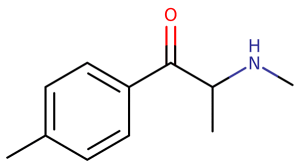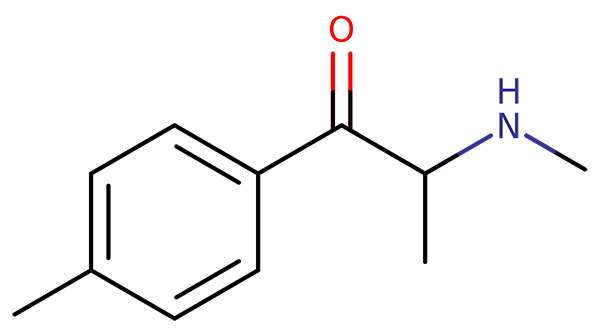
What is Mephedrone
Mephedrone (4-MMC) is a synthetic drug, a derivative of the natural amphetamine cathinone, which is obtained from the African plant cat. Mass production of the substance has been established in clandestine laboratories in China and Southeast Asia. By its action, the drug is close to cocaine, amphetamine, ecstasy. Therefore, traders brought it to the market as a safe and legal alternative to illegal drugs.
The effect of mephedrone on the body
Mephedrone acts as a stimulant and empathogen:
-causes a surge of strength, euphoria
-improves mood, communication and sexual attraction
-inspires a sense of their own uniqueness
-inspires trust and love for people
Side effects of mephedrone on the body:
-dilation of pupils
-increase in body temperature
-cardiac arrhythmia
-sweating
-headache
-gnashing of teeth
-nausea
-nosebleeds

The consequences of using mephedrone
Since mephedrone does not have a permanent composition, the long-term effects of its use have not been fully studied. But in any case, doctors predict the risk of developing serious diseases: kidney and liver failure, hypertension, arrhythmia, respiratory cancer. And the consequences for the psyche – psychosis, paranoia, depression – come after the first reception.
Methodron causes persistent psychological dependence. Salt “arrival” does not last long – 2-3 hours. As soon as the effect passes, there is a strong desire to take a new dose. As a result, tolerance develops, the addict is forced to increase the dose and frequency of intake, and one day this leads to an overdose.
Consequences of intravenous administration of mephedrone
To enhance the effect, mephedrone is administered intravenously. Since this is a designer drug produced in artisanal conditions, the substance may contain any harmful impurities and even infectious agents. The introduction of a dirty substance intravenously carries the threat of inflammation and abscesses at the injection sites, infection with blood infections, poisoning, allergic reactions, fatal overdose.
Mephedrone withdrawal
Since mephedrone causes persistent dependence, refusal to take the drug causes a strong withdrawal syndrome – withdrawal. This painful and dangerous condition is accompanied by severe headaches, chest pains, cardiac arrhythmias, sleep and appetite disorders. A syndrome often develops in which the patient experiences multiple vomiting attacks. This condition is dangerous by exhaustion and dehydration. On the part of the psyche, mephedrone withdrawal is accompanied by deep depression and thoughts of suicide. Mephedrone withdrawal can be fatal.

Signs of Mephedrone use
Poisoning with mephedrone can be recognized by the following signs:
-dilated pupils
-severe thirst, dry mouth
-profuse sweating
-uncontrolled jaw movements, gnashing of teeth
-excessive talkativeness, fast and incoherent speech
-hyperactivity, fussiness
-previously, friendliness and sociability were not characteristic of a person
-strange obsessions, imagining yourself as a person with unique abilities
-inappropriate behavior
The following symptoms indicate prolonged abuse of mephedrone:
-frequent sudden nosebleeds
-severe weight loss
-dry skin, dehydration
-sleep disorders, appetite disorders
-severe headaches
-pain in the heart area
-extensive bruising on elbows and knees
-sudden mood swings
-weakness, fatigue
-agitation, aggressive behavior
-psychosis, panic attacks, hallucinations
-depression, tearfulness
Consequences of the use of mephedrone
Since mephedrone does not have a permanent composition, the long-term effects of its use have not been fully studied. But in any case, doctors predict the risk of developing serious diseases: kidney and liver failure, hypertension, arrhythmia, respiratory tract cancer. And the consequences for the psyche – psychosis, paranoia, depression – come after the first reception.
The method of treatment causes persistent psychological dependence. Salt “arrival” does not last long – 2-3 hours. As soon as the effect passes, there is a strong desire to take a new dose. As a result, tolerance develops, the addict is forced to increase the dose and frequency of intake, and one day this leads to an overdose.
Consequences of intravenous administration of mephedrone
To enhance the effect, mephedrone is administered intravenously. Since this is a designer drug produced in artisanal conditions, the substance may contain any harmful impurities and even infectious agents. The introduction of a dirty substance intravenously carries the threat of inflammation and abscesses at injection sites, infection with blood infections, poisoning, allergic reactions, fatal overdose.
Withdrawal of mephedrone
Since mephedrone causes persistent dependence, refusal to take the drug causes a strong withdrawal syndrome – withdrawal. This painful and dangerous condition is accompanied by severe headaches, chest pains, cardiac arrhythmias, sleep and appetite disorders. A syndrome often develops in which the patient experiences multiple vomiting attacks. This condition is dangerous by exhaustion and dehydration. On the part of the psyche, the rejection of mephedrone is accompanied by deep depression and thoughts of suicide. Cancellation of mephedrone can lead to death.
Signs of mephedrone use
Poisoning with mephedrone can be recognized by the following signs:
-dilated pupils
-severe thirst, dry mouth
-profuse sweating
-uncontrolled jaw movements, gnashing of teeth
-excessive talkativeness, fast and incoherent speech
-hyperactivity, fussiness
-previously, friendliness and sociability were not characteristic of a person
-strange obsessions that imagine themselves as a person with unique abilities
-inappropriate behavior
The following symptoms indicate prolonged abuse of mephedrone:
-frequent sudden nosebleeds
-severe weight loss
-dry skin, dehydration
-sleep disorders, appetite disorders
-severe headaches
-pain in the heart area
-extensive bruising on elbows and knees
-sudden mood swings
-weakness, fatigue
-arousal, aggressive behavior
-psychosis, panic attacks, hallucinations
depression, crying, Ephedron is a drug of discos and hangouts, so its main consumers are young people from 15 to 30 years old. Mephedrone makes teenagers more liberated, helps to communicate, get acquainted with the opposite sex, gives strength to have fun and dance all night. In addition, mephedrone is cheap and affordable, which also makes it attractive to young people.
Overdose of mephedrone
A strong dependence on mephedrone forces addicts to increase the dose in order to feel the initial buzz again. Teenagers often do a so-called marathon – they continuously take the drug for several days, dose by dose. This leads to an overdose.
Due to the fact that mephedrone is produced in artisanal conditions, the concentration of the substance can vary greatly from batch to batch. Therefore, those who take mephedrone episodically or even for the first time are also at risk of overdose.
Signs of mephedrone overdose:
-high fever, chills
-profuse sweating
-involuntary contractions of the muscles of the body and face, grimaces
-seizures
-high blood pressure
-rapid heartbeat, arrhythmia
-severe headache
-foaming from the mouth
-nosebleed
-chronic vomiting
-loss of consciousness
-loss of communication with the outside world — lack of reaction to external stimuli
-frightening hallucinations, panic, psychosis
Overdose with mephedrone provokes the development of dangerous conditions — death can occur from acute heart failure, hypertensive crisis, overheating, which leads to brain edema. And if there are mental illnesses, the addict is dangerous not only for himself, but also for others.
At the first signs of an overdose of mephedrone, call an ambulance immediately. Before the arrival of the medics, stay with the victim, do not let him fall asleep. Lay him on a hard surface and make sure that he does not choke on vomiting. If a person does not respond to your voice, try to bring him back to consciousness — pat his cheeks, wash with water. If there are signs of severe overheating, wrap the victim’s head with a wet towel.
If a person is not breathing and there are no signs of a pulse, lay him on a flat surface and provide first aid: do artificial respiration and closed heart massage. Even when the person regained consciousness, his breathing and pulse were restored, do not leave him unattended, wait for the arrival of doctors.

